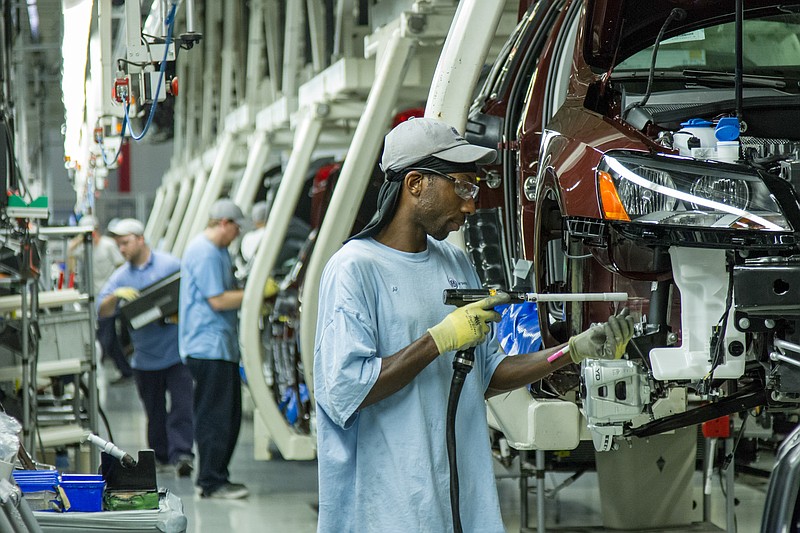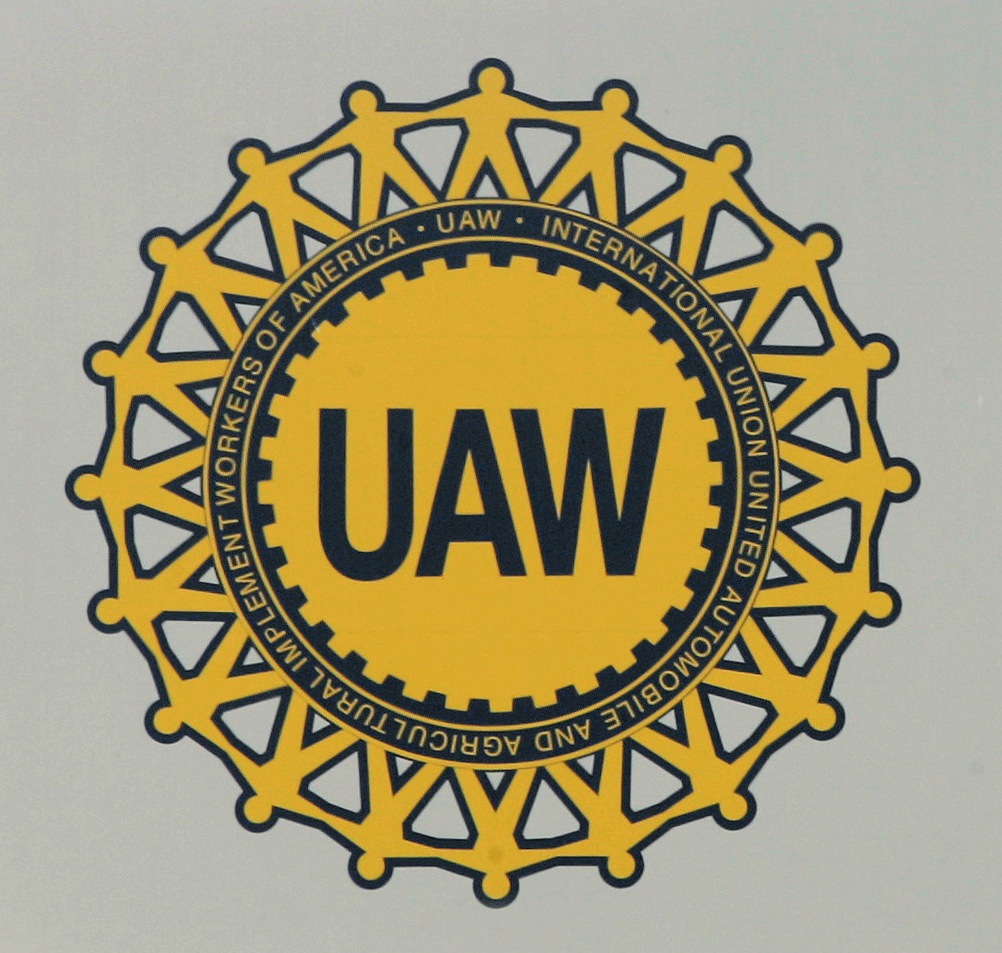NASHVILLE, Tenn. (AP) - The United Auto Workers union has 816 members at the Volkswagen plant in Tennessee, or about 55 percent of the total blue collar work force, according the union's latest disclosure with the U.S. Department of Labor.
The filing comes as the UAW works toward gaining collective bargaining rights at its first foreign-owned plant in the South. And the union's case for recognition could be bolstered by leadership shakeup at the German automaker that has left a former union chief, Berthold Huber, as the interim chairman of the world's No. 2 automaker.
The UAW last year narrowly lost a union vote at the Chattanooga plant that featured heavy campaigning by anti-union Republicans like U.S. Sen. Bob Corker. Huber wrote workers at the plant before the vote urging them to support the UAW.
"I recommend that you choose to have a democratic voice in your work place and vote for union representation by the UAW," Huber wrote in December 2013. "Thus you will become a part of a global family of solidarity."
Huber took over the helm of Volkswagen last week after the shock resignation patriarch Ferdinand Piech, who had shaped the company's destiny for more than 25 years. Piech had criticized CEO Martin Winterkorn in an interview with Germany's Der Spiegel magazine, saying he was "at a distance" from him. Other board members - including labor representatives who make up half of the 20-member supervisory board - backed Winterkorn.
One of the sticking points between Piech and Winterkorn was said to be Volkswagen's underperformance in the U.S. market, where the company saw market share drop from 3 percent in 2012 to 2.2 percent in 2014.
Volkswagen last year announced plans to expand the Chattanooga plant to build a new SUV aimed at reviving flagging sales in the U.S., but the new model isn't expected to hit dealerships until next year.
The decision to build the new SUV followed months of political tension stemming from Volkswagen's labor-friendly corporate culture coming into the political crosshairs of Republicans who fear a UAW foothold among foreign automakers would make the region less competitive to future investment.
Following the 712-626 vote against the union in February 2014, it was revealed that Republican Gov. Bill Haslam administration's $300 million incentive package offered to Volkswagen had contained the caveat that the money was subject to labor talks "being concluded to the satisfaction" of the state. Haslam at the time declined to specify which scenarios would have satisfied the state.
The UAW initially filed a challenge of the election outcome with the National Labor Relations Board on the basis of outside interference. But the union ultimately dropped its case after it said it had come to an agreement with Volkswagen to attain recognition without another vote.
Tennessee lawmakers earlier this month approved the state share of the incentive package, despite some grumbling about the ongoing labor presence at the plant.
VW management has been under heavy pressure from powerful worker representatives because the U.S. plant is alone among the company's worldwide plants without labor representation. The company wants to create a German-style works council at the Tennessee plant to represent salaried and hourly workers. Under that model, wages are bargained through the union, while the council negotiates matters like job security and working conditions.
UAW Local 42 had already qualified for the top tier of a new labor policy created at the Volkswagen plant in Chattanooga after an independent auditor verified the union had signed up at least 45 percent of blue collar workers at the plant. The policy establishes regular meetings with management and access to plant space for meetings, but does not address collective bargaining rights, though the UAW is pressing to be recognized as the exclusive negotiating partner at the plant.
A rival group called the American Council of Employees, or ACE, has qualified for the lowest tier of 15 percent of workers, which grants less frequent access to plant meeting rooms and discussions with managers. The group headed by prominent UAW critics during last year year's union vote, has not disclosed membership numbers or sources of funding.

